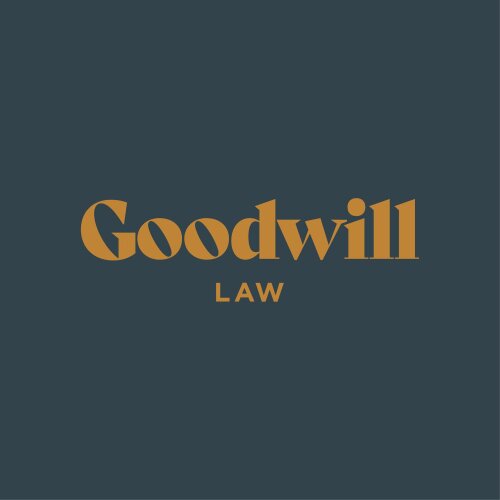Best Brokerage Lawyers in New Plymouth
Share your needs with us, get contacted by law firms.
Free. Takes 2 min.
Free Guide to Hiring a Real Estate Lawyer
List of the best lawyers in New Plymouth, New Zealand
About Brokerage Law in New Plymouth, New Zealand
Brokerage in New Plymouth, New Zealand, plays a pivotal role in facilitating transactions between buyers and sellers across various sectors, such as real estate, insurance, stock trading, and business sales. Brokers are intermediaries who connect parties, assist in negotiations, and ensure compliance with legal requirements. Brokerage law governs the conduct of these professionals, outlining their obligations, rights, and the extent of their authority within these transactions. In New Plymouth, brokers must adhere to both national legislation and local bylaws, ensuring ethical and transparent practices that protect the interests of all parties involved.
Why You May Need a Lawyer
Several situations may require legal guidance when dealing with brokerage matters in New Plymouth. Common reasons include:
- Disputes between clients and brokers about fees, commissions, or performance of duties
- Review of contracts or brokerage agreements to ensure fairness and legal compliance
- Fraud or misrepresentation claims in transactions facilitated by a broker
- Breaches of fiduciary duty, where a broker may not have acted in the client's best interests
- Regulatory compliance issues for those operating as brokers or setting up brokerage businesses
- Disciplinary proceedings or investigations by industry regulators
- Pursuing or defending claims relating to property, business, or investment brokerage
Local Laws Overview
Brokerage activities in New Plymouth are governed by a mix of national and local laws. Key pieces of legislation include the Real Estate Agents Act 2008, the Financial Markets Conduct Act 2013, the Fair Trading Act 1986, and industry-specific regulations. Brokers in real estate, insurance, or financial markets must hold valid licenses and follow strict codes of conduct. These laws set out requirements regarding transparency of fees, disclosure of conflicts of interest, record-keeping, marketing practices, and protection of client funds. Local bylaws may also impact how brokers advertise or conduct business in New Plymouth, so compliance with the New Plymouth District Council regulations is crucial.
Frequently Asked Questions
What is a broker and what do they do?
A broker is a licensed intermediary who facilitates transactions between parties, such as buying or selling property, financial securities, or insurance policies, and earns a commission or fee for their service.
Do brokers in New Plymouth need to be licensed?
Yes, most brokers, especially in real estate, financial services, and insurance, must be licensed by the respective regulatory authorities to operate legally in New Plymouth.
What should I check before hiring a broker?
Verify that your broker holds a current license, has no disciplinary actions against them, understands local laws, and clearly states their fees and commissions in writing.
How are brokerage disputes resolved?
Disputes can often be settled through negotiation or mediation. If unresolved, parties can seek help from industry regulators, the Disputes Tribunal, or the courts.
Can I terminate a brokerage agreement if I am not satisfied?
Most brokerage agreements include terms for termination. Review your contract for notice periods and possible penalties, and seek legal advice if you have concerns.
What disclosures must a broker make?
Brokers must disclose all material facts, conflicts of interest, and the full extent of their fees or commissions, as well as any relationships that could affect their impartiality.
Are brokerage fees regulated?
Fees are usually set by contract, but must be fair, transparent, and fully disclosed up front. Unfair charges or hidden fees could breach consumer protection laws.
What recourse do I have if a broker acts dishonestly or negligently?
You can lodge a complaint with the regulatory body, pursue compensation, or, in serious cases, take court action against the broker for damages or breach of duty.
Are there specific regulations for online or digital brokers?
Yes, digital and online brokerage services are subject to the same legal requirements as traditional brokers, including licensing, disclosure, and consumer protection laws.
How can lawyers help with brokerage transactions?
Lawyers review and draft contracts, advise on compliance, resolve disputes, and represent clients in negotiations or legal proceedings related to brokerage.
Additional Resources
For more information, or if you need support regarding brokerage issues in New Plymouth, consider these organizations:
- Real Estate Authority (REA) - oversees real estate agents and related brokers
- Financial Markets Authority (FMA) - regulates securities and financial services brokerage
- Insurance Council of New Zealand - provides guidance on insurance brokers
- Commerce Commission - enforces fair trading and consumer protection laws
- New Plymouth District Council - for local bylaws and licensing requirements
- Citizens Advice Bureau - for general guidance and community support
Next Steps
If you need legal assistance with a brokerage issue in New Plymouth:
- Clarify your situation and gather all relevant documents and contracts
- Contact a local lawyer with expertise in brokerage or the relevant industry sector
- Check professional bodies for registered legal practitioners
- Prepare specific questions you want to ask or issues you want addressed
- If the matter involves a complaint about a broker, consider contacting the regulator or ombudsman as a first step
- Follow legal advice and keep records of all communications and actions taken
Lawzana helps you find the best lawyers and law firms in New Plymouth through a curated and pre-screened list of qualified legal professionals. Our platform offers rankings and detailed profiles of attorneys and law firms, allowing you to compare based on practice areas, including Brokerage, experience, and client feedback.
Each profile includes a description of the firm's areas of practice, client reviews, team members and partners, year of establishment, spoken languages, office locations, contact information, social media presence, and any published articles or resources. Most firms on our platform speak English and are experienced in both local and international legal matters.
Get a quote from top-rated law firms in New Plymouth, New Zealand — quickly, securely, and without unnecessary hassle.
Disclaimer:
The information provided on this page is for general informational purposes only and does not constitute legal advice. While we strive to ensure the accuracy and relevance of the content, legal information may change over time, and interpretations of the law can vary. You should always consult with a qualified legal professional for advice specific to your situation.
We disclaim all liability for actions taken or not taken based on the content of this page. If you believe any information is incorrect or outdated, please contact us, and we will review and update it where appropriate.












